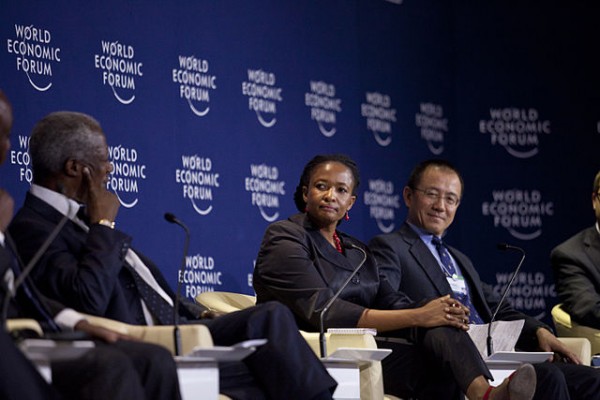
Photo Credit: World Economic Forum
With the recent U.S. “pivot to Asia,” some analysts argue the U.S. is losing interest and influence in Africa, resulting in China overtaking the United States as Africa’s largest trading partner. President Obama, however, has warned African national leaders to be wary of China’s need to fuel its economic growth, “You produce the raw materials, sold them cheap and then all the way up the chain somebody else is making the money and creating the jobs and the value.” Obama has further urged African nations to be tougher negotiators, and to “Make sure that whoever you’re dealing with…you’re getting a good deal that’s benefiting the people here and that can help to spur on broad-based development.”
Obama’s warnings are not without precedent. Foreign investment coming from China has long been criticized for representing economic colonialism, exporting pollution, using foreign workers instead of local labor, and displacing small manufacturers, all of which Western governments have been accused of in the past. And like the colonial nations active in Africa before, the Chinese are discovering that investment in Africa has its costs.
Last Wednesday, around 500 local workers at the Chinese-run SUCOMA sugar plant in Morondova, on the island nation of Madagascar, clashed with Madagascar military forces after their leaders were detained, resulting in two deaths and nine injured. According to the Chinese embassy, the workers, some carrying guns or machetes, started causing trouble after their “unreasonable demands” were refused. The demands of the workers were for better pay and work conditions, while some of the demands were from seasonal workers who wished for full-time contracts.
In early November, according to the Chinese embassy, workers at the plant had begun blockading the plant, cutting utilities and sabotaging equipment, and harassing employees. On Nov. 26, angry workers had looted the plant. Zhou Jianping, the General Administrator of SUCOMA, said, “The crowd robbed not only SUCOMA but also other Chinese in Morondava. It is very sad to see that this problem became xenophobia.” Chinese workers at the plant have since been evacuated to the capital Antananarivo for their safety, according to Chinese embassy staff.
For the time being, incidents like the one above will not undermine overall Chinese interest in Africa. African governments prefer China’s deep pockets and no-strings attached aid policy to the cumbersome conditions of Western nations. Chinese investment is typically welcomed by Africans, who look to China to provide better job opportunities and the construction of better roads, schools and hospitals. According to a Gallup World poll of global attitudes from 2011, sub-Saharan African nations have the highest levels of support for the Chinese leadership.
Chinese investment has long been welcome in Africa as long as it adheres to the regulatory framework, creates jobs, helps build infrastructure and bring money to the local economy. But the incident in Madagascar points to the need for Chinese companies to manage their labor conditions carefully and treat their local workers fairly. African governments should also ensure that Chinese investment in their countries not only brings much-needed jobs, but fair wages and working conditions. The incident in Morondova drew criticism from the Chinese embassy of local authorities for failing to protect Chinese interests, but without efforts to ensure proper working conditions from both the Chinese and African governments, Africa will continue to see more disputes similar to those at Morondova.